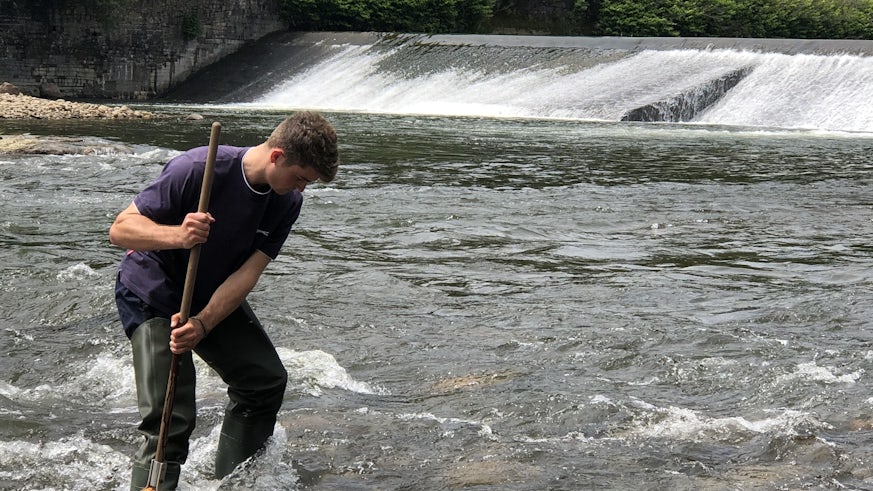Scientists pour cold water on claims British rivers are ‘cleanest since Industrial Revolution’
11 July 2022

Scientists have poured cold water on recent claims that water quality in rivers in England and Wales is “better than at any time since the end of the Industrial Revolution”.
Although progress has been made in reducing some pollutants over the past three decades, a new study shows a mixed picture, and does not comprehensively support these claims.
In Wales, the review suggests there has been some recovery from the past effects of acid rain and also from the effects of sanitary pollution which led in the 1970s to 70% of rivers in the South Wales Valleys being classed as “grossly polluted”.
However, emerging water quality problems identified in the paper, such as Combined Sewer Overflows (CSOs), emerging contaminants such as microplastics and pharmaceuticals, and the effects of intensifying agriculture, are “concerning” for Welsh rivers.
The comprehensive review of the Industrial Revolution claim, which has been made by ministers and senior government officials in recent years, is published in the journal Science of the Total Environment.
The review was authored by researchers from Cardiff University, along with the universities of Leicester, Bristol, York and Stirling, as well as WWF-UK, the UK Centre for Ecology & Hydrology, the Rivers Trust, the Angling Trust, and the USA’s Ronin Institute.
Cardiff University’s Professor of Ecology, Steve Ormerod, said: “This comprehensive overview of water quality highlights concerning findings for Wales. It confirms how effective regulation has helped to tackle major historical problems – notably acid rain or the sewage outfalls that once led to 70% of rivers in the South Wales Valleys being classed as grossly polluted.
“At the same time, it reveals the need to get a far stronger grasp of issues such CSOs, emerging pollutants such as microplastics and pharmaceuticals, and intensifying agriculture, which appears to be degrading internationally important Welsh rivers such as the Wye.”
Combined with insights into historical population growth, industrial activity and wastewater treatment provision, the scientists collated available water quality data in England and Wales for seven different categories of water pollutants from the late 19th Century up to the present day – though historical data were often in short supply.
The researchers noted that, while levels of some pollutants probably peaked at some point between the 1960s and the mid-1990s and have since declined, water quality is still “unacceptably poor” in multiple areas across the UK. They also found signs that recent progress to tackle pollution has stalled. Levels of nitrate in many catchments remain high, and levels of most synthetic organic pollutants are unknown.
The study authors called for urgent improvements to water quality in many rivers and streams, as well as enhancements to monitoring programmes, including increased frequency and geographical spread of sampling and including a wider range of pollutants in routine analyses.
Mick Whelan, Professor of Environmental Science at the University of Leicester and corresponding author for the review, said: “Data for many pollutants show that concentrations are, indeed, likely to be lower than they were in the 1960s and 70s... However, we have very little understanding about the impacts of many contaminants because we just don’t look for them routinely.”
Dave Tickner, Head of Freshwater at WWF, urged water companies, regulators and government “to step up and enforce the rules designed to clean them up”.
“That means holding polluters to account and tackling the farming practices that have flooded our waters with harmful chemicals – this must be part of a wider effort to accelerate the shift to nature-friendly farming across the country,” he said.

